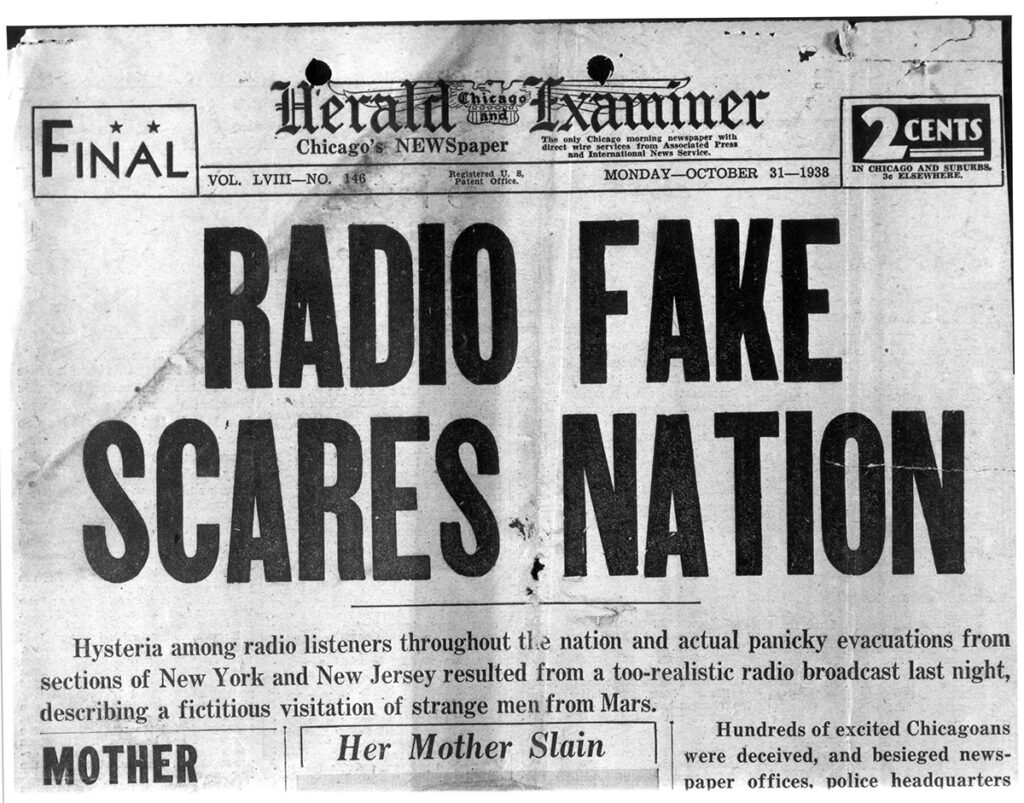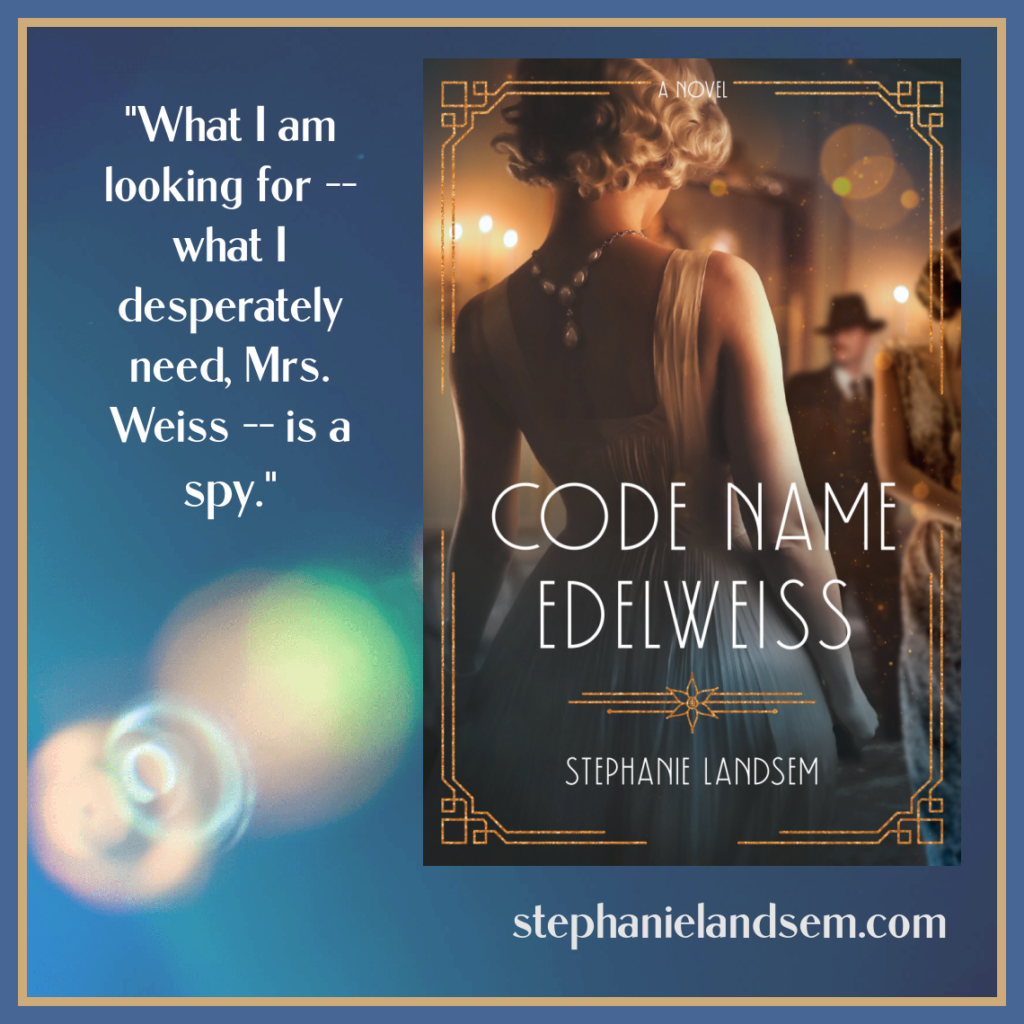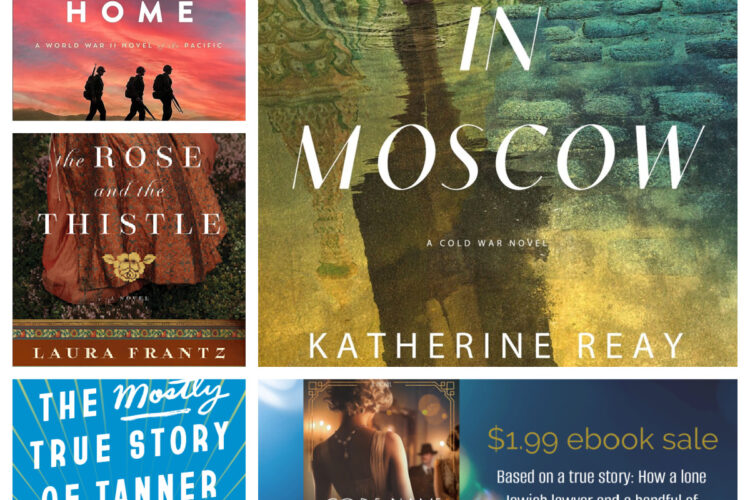The Hebgen Lake Earthquake of 1959 struck on a moonlit August night in western Montana,…
War of the Worlds: 5 Facts you didn’t know about the Fake Newscast
On October 30th, 1938, a radio broadcast on the CBS Radio station “The War of the Worlds” supposedly led to widespread panic all over the United States — at least that’s what the newspapers said. When you look at what really happened, it was the newspapers — not Orson Welles and his cast — that ‘faked’ the facts!

What was War of the Worlds?
Welles’s broadcast was based on H.G. Wells’s 1898 novel The War of the Worlds. The original setting for this story was 1890s England, which Welles changed for the radio broadcast to 1930s New Jersey. They chose not to present the story as a drama — a common radio genre in the 1930s — but to act it out as a newscast, with a slew of talented voices playing reporters, a university professor, bystanders — all with realistic side effects.
Wells was a master-storyteller. He knew that for his story to grab attention and be believable, he had to act it out in real time. The reports of the alien invasion were released at first in short, unclear news flashes, then the ‘regular programming’ of orchestra music resumed. Finally, the music program is cut short with an announcement: “Incredible as it may seem, both the observations of science and the evidence of our eyes lead to the inescapable assumption that those strange beings who landed in the Jersey farmlands tonight are the vanguard of an invading army from the planet Mars. . . .” The program went on for the next hour describing an alien invasion of the eastern seaboard. It ended with a closing statement by Welles that the show was a “holiday offering” to the listeners.
What did the newspapers report?
- telephone switchboards were jammed with calls from terrified listeners
- Houses emptied as people took to the streets
- churches filled with terrified members who thought the world was ending
- Reports suggested that the ‘wave of hysteria’ even led to suicides of those who didn’t want to be captured by the alien invaders
- citizens jumped in their cars and jammed the streets, attempting to flee the invasion
What really happened?
- Most historians agree that the War of the Worlds panic was less widespread than the newspapers of the time made it out to be. In other words — it was a sensational story that grew the more it was reported on.
- It’s believed that only 2% of the population was even listening to the radio night. Those who did — and were worried — either called their local police station or their broadcasting studio to ask if the reports were true. So in truth, it was a panic and outrage from the media itself, rather than people at home.
- B the end of the broadcast, the CBS studio was filled with police. The cast and crew were locked in a building, and network employees told to destroy or lock up the scripts and recordings of the broadcast.
- Orson Welles himself was heard to say after the broadcast ended, “I’m through, all washed up.” We know that’s not the case, as he went on to make such blockbusters as Citizen Kane and many more films.
It’s unclear if Orson Welles intended to cause the panic that night. Some believed him when in his interview with reporters the next day he stated, “We learned a terrible lesson,” contritely and sincerely. But others thought that he was delighted with the notoriety and publicity his stunt brought to him.
Listen to the original broadcast here
5 Little-Known Facts about War of the Worlds
Little known and Utterly amazing Fact #1: Orson Welles directed, produced, and narrated the radio program, and he was only 23 years old!
Little known Fact #2: The War of the Worlds wasn’t the only trouble Mr. Wells got in with his productions. About a year before, Orson had demanded the character of Brutus in his production of Julius Caesar to use a real dagger instead of a fake one — which resulted in a (non-life-threatening) wound to the unfortunate actor (Joseph Holland) who was playing Julius Caesar.
Little known fact #3: Orson Welles’s stunt was influenced by a lesser-known radio-induced panic that happened in England in 1926. A radio show hosted by Reverand Father Ronald Knox, a Catholic priest, enacted a realistic worker riot in London. The show recounted in dramatic detail attacks on the National Gallery, the Houses of Parliment, and the Savoy Hotel by violent protesters — all accompanied by sounds of mobs and explosions. Some listeners panicked, rushing to the streets and attempting to flee London. The BBC program finally let the listeners in on the truth: what they’d heard was a skit entitled Broadcasting the Barricades and no riot had taken place.
Little known fact #4 (MY FAVORITE): In Concrete, Washington (a tiny town where I spent my childhood years) phone lines and electricity went out just after the first reports of the alien invasion. The coincidence resulted in hysteria in the little town. A resident reported later that people took to the streets in the pouring rain, “yellin’ that the world was comin’ to an end.” Reporters who heard of the panic-inducing coincidence sent the story out nationwide and my tiny hometown had its 15 minutes of fame.
Little known fact #5: Orson Welles and H.G. Wells actually did meet, but not until 1940. They were both lecturing at an event in San Antonio Texas. They spoke of the War of the Worlds incident and decided that the panic was overblown. “Its the same kind of excitement that we extract from a practical joke in which somebody puts a sheet over his head and says ‘Boo!’ I don’t think anybody believes that that individual is a ghost, but we do scream and yell and rush down the hall. And that’s just about what happened.”
Do you love learning little-known historical facts? If you do, I think you’ll enjoy my latest release, Code Name Edelweiss. Code Name Edelweiss is based on a true story, unknown until recent years: How a lone Jewish lawyer and a handful of amateur spies discovered and foiled Adolf Hitler’s plan to take over Hollywood. Find all the information and how to order right here!

Did you know any of these fun facts about War of the Worlds? Let me know in the comments!

This Post Has One Comment
Comments are closed.


Great article- sparked a fun discussion on a car trip as hubby is very proud of having this record album!